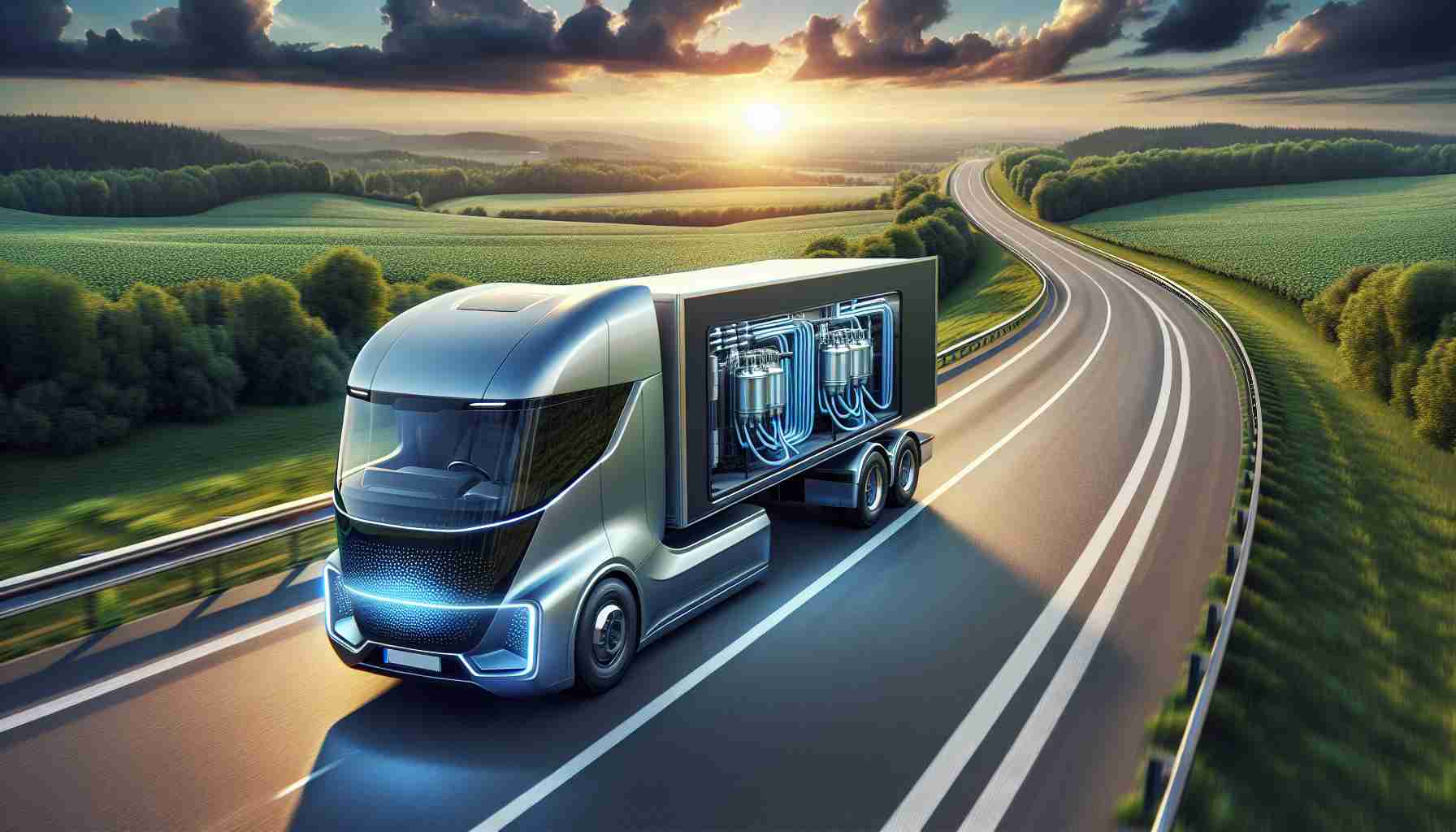- Nikola Corporation is revolutionizing transportation with hydrogen-electric trucks, offering a sustainable alternative to diesel.
- Hydrogen fuel significantly reduces carbon emissions, emitting only water vapor, thus supporting cleaner air and combating climate change.
- The development of hydrogen infrastructure is crucial for decreasing fossil fuel dependency in heavy-duty transport.
- Hydrogen technology is set to generate economic opportunities, create jobs, and foster growth, especially in underdeveloped regions.
- Challenges such as scalability and regulatory issues must be addressed to ensure widespread adoption.
- Strategic innovation and collaboration are essential for a sustainable transportation future by 2050.
- The transition to hydrogen fuel represents a blend of technology and ecological consciousness, promising a better future.
Envision a world where trucks glide silently along highways, leaving behind nothing but a puff of water vapor. Nikola Corporation’s cutting-edge hydrogen-electric trucks are turning this vision into reality, propelling us into an era of sustainable transportation. By championing hydrogen as a clean alternative to diesel, Nikola is slashing carbon emissions and redefining eco-friendly logistics.
The heart of this transformation is hydrogen fuel, renowned for its ability to combat climate change. Unlike traditional polluters, hydrogen emits only water, making it a beacon of hope for cleaner skies and breathable air. Nikola’s commitment to building a robust infrastructure for hydrogen production and distribution signals a significant thrust towards minimizing reliance on fossil fuels, especially in the heavy-duty transport sector.
But it’s not just the environment that stands to gain. The rise of hydrogen technology brings sweeping economic shifts. Opportunities in green technology are multiplying, creating jobs and new markets reminiscent of past industrial revolutions. This boom promises to uplift underdeveloped regions, driving inclusive growth and enhanced community welfare on a global scale.
However, the road to full-scale adoption isn’t without challenges. Scalability and regulatory barriers pose considerable hurdles. Yet, through innovation, strategic partnerships, and governmental collaboration, Nikola is poised to dismantle these obstacles, heralding a sustainable future by 2050.
The movement towards hydrogen fuel represents a harmonious blend of technological prowess and ecological mindfulness, painting a hopeful picture of our transportation landscape. As Nikola leads us into this promising future, the question remains: how rapidly can we embrace this change for the betterment of our planet and economy?
The Future of Transport: Unlocking the Potential of Hydrogen-Electric Trucks
The Promise of Hydrogen-Electric Trucks: Insights and Innovations
1. What are the unique features of Nikola Corporation’s hydrogen-electric trucks?
Nikola Corporation’s hydrogen-electric trucks are pioneering a silent and efficient future for freight transportation. These trucks embody several unique features, including:
– Zero Emissions: They operate by using hydrogen fuel cells, which emit only water vapor, positioning them as a clean alternative to traditional diesel engines.
– Advanced Powertrain: The integration of electric propulsion systems ensures superior energy efficiency and reduced maintenance costs compared to conventional internal combustion engines.
– Long Range and Fast Refueling: With a range extending up to several hundred miles on a single fill, these trucks can be refueled quickly, mirroring the convenience of diesel trucks but with a dramatic reduction in environmental impact.
2. How does the adoption of hydrogen fuel technology impact the economy and job market?
The shift towards hydrogen fuel technology offers significant economic benefits and job opportunities, including:
– Job Creation: The rise of hydrogen technology is expected to generate jobs in various sectors, including manufacturing, infrastructure development, and maintenance, particularly in regions transitioning from traditional industries.
– Economic Stimulus: Investment in hydrogen infrastructure — such as production plants and distribution networks — can stimulate local economies and attract global business collaborations.
– Enhanced Competitiveness: Companies committed to sustainable practices can gain a competitive edge, fostering innovation in clean technologies and setting new industry standards.
3. What challenges does Nikola Corporation face in scaling hydrogen-electric truck technology?
Despite its promising benefits, several challenges impede the widespread adoption of hydrogen-electric trucks:
– Infrastructure Development: Establishing a comprehensive network for hydrogen production and fueling stations is a critical challenge that requires considerable investment and cooperation between public and private entities.
– Regulatory Frameworks: Harmonizing regulations across regions and jurisdictions is essential to facilitate the smooth integration of hydrogen technologies into existing transportation systems.
– Cost Efficiency: Reducing the cost of hydrogen production and developing cost-effective fuel cell technology is vital for making these vehicles economically viable compared to diesel trucks.
For those wishing to delve deeper into the horizon of hydrogen-electric transportation and the future of sustainable trucking, consider visiting nikolamotor.com for more information.
Unlock the Trends and Potential
Nikola Corporation’s endeavor in hydrogen-electric trucking could reshape logistics, combining ecological objectives with economic incentives. While challenges remain, strategic innovation and collaboration hold the key to unlocking a sustainable and efficient freight transport future.



















